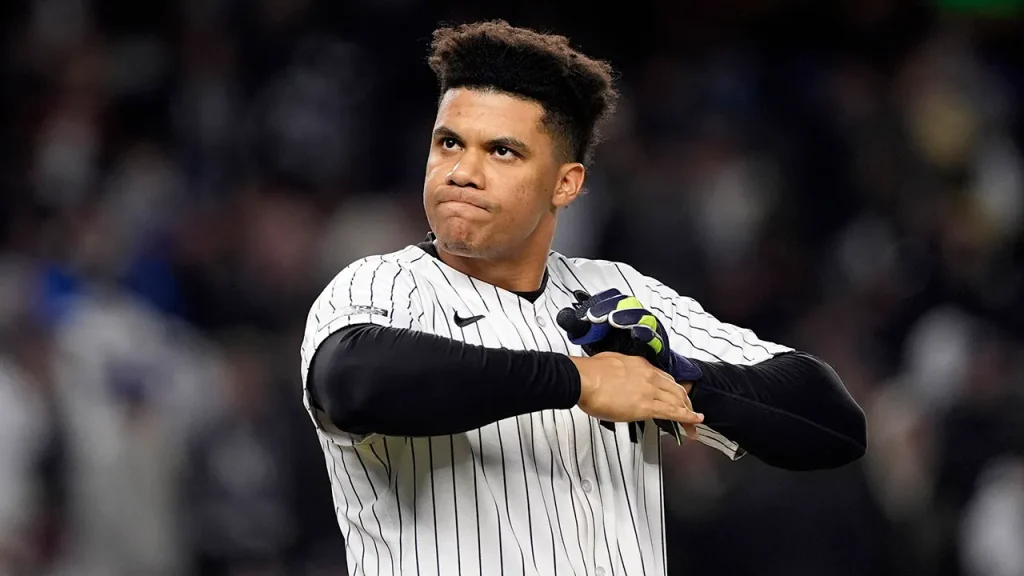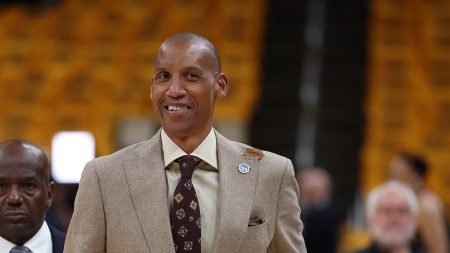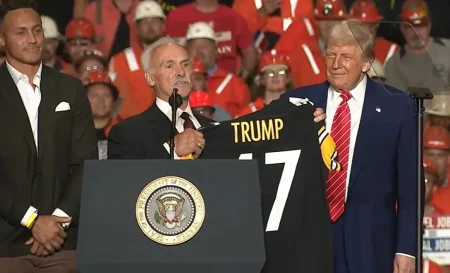The seismic shift in the baseball landscape caused by Juan Soto’s decision to sign with the New York Mets continues to reverberate through the Bronx, leaving Yankees fans grappling with the superstar’s choice to don blue and orange instead of pinstripes. While the staggering $765 million contract offered by Mets owner Steve Cohen undoubtedly played a pivotal role, an intriguing subplot has emerged, suggesting a factor beyond mere dollars and cents influenced Soto’s decision. A report indicates that the Mets’ willingness to provide a complimentary suite for Soto’s family, a perk the Yankees reportedly balked at, may have contributed to swaying the coveted outfielder towards Queens.
This seemingly minor detail underscores the lengths to which Cohen was prepared to go to secure Soto’s services. The Mets owner, known for his aggressive pursuit of top talent, recognized the importance of creating an environment where Soto and his family would feel valued and comfortable. In contrast, the Yankees, citing precedent set by team legends Aaron Judge and Derek Jeter, who both paid for their families’ suites, were reportedly unwilling to extend the same courtesy to Soto. While a discounted rate was apparently offered, the absence of a fully complimentary suite, as provided by the Mets, may have subtly signaled a difference in the two organizations’ approach to player acquisition and retention.
The financial terms of Soto’s contract with the Mets are undeniably historic, dwarfing Shohei Ohtani’s $700 million deal with the Los Angeles Dodgers. With no deferrals, Soto is set to receive an annual salary of $51 million, supplemented by a $75 million signing bonus – a feature absent from the Yankees’ offer. Furthermore, escalator clauses woven into the contract have the potential to push the total value to a staggering $805 million. The contract also includes a fifth-year opt-out clause, providing Soto with flexibility and leverage at the age of 30.
The Yankees, despite falling short in their pursuit of Soto, presented a competitive offer, reportedly tabling a 16-year, $760 million contract. Yankees General Manager Brian Cashman acknowledged that this proposal stretched beyond the team’s typical comfort zone, highlighting the organization’s genuine desire to acquire the generational talent. However, the Yankees’ offer, while substantial, ultimately proved insufficient to overcome the allure of the Mets’ package, which seemingly addressed both Soto’s financial aspirations and his family’s comfort.
Even Cohen himself recognized the inherent challenges in outbidding the Yankees, given Soto’s established relationship with the team and his prior World Series appearance in pinstripes. Cohen acknowledged the formidable combination of Soto’s existing ties to the Yankees and the presence of Aaron Judge, a cornerstone of the franchise. Despite these obstacles, Cohen, along with General Manager David Stearns and the rest of the Mets’ front office, skillfully navigated the complexities of the negotiation process, ultimately fulfilling Soto’s criteria for his long-term future in Major League Baseball.
In the wake of Soto’s decision, the Yankees have shifted their focus to alternative targets, reportedly prioritizing starting pitching acquisitions. Names such as Max Fried and Corbin Burnes have emerged as potential additions to bolster the Yankees’ rotation. The team’s response to missing out on Soto will be closely scrutinized as they navigate the offseason and prepare for the upcoming season. The sting of Soto choosing the crosstown rivals undoubtedly lingers in the minds of Yankees fans, leaving them to ponder what might have been and eager to see how the team rebounds from this high-profile setback. The long-term implications of Soto’s decision will continue to unfold, shaping the dynamics of the New York baseball landscape for years to come.










